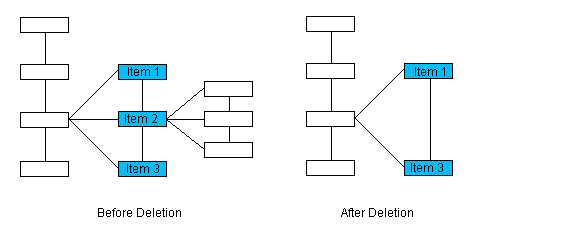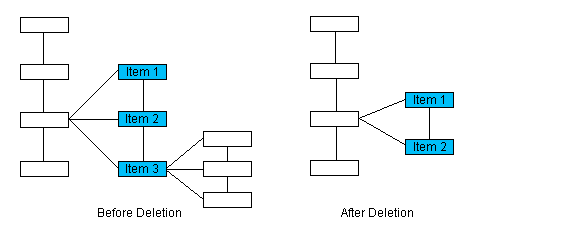| Visual Basic (Declaration) | |
|---|---|
Public Sub DeleteKey( _ ByVal element As DicomElement _ ) | |
| Visual Basic (Usage) |  Copy Code Copy Code |
|---|---|
| |
| C# | |
|---|---|
public void DeleteKey( DicomElement element ) | |
| Managed Extensions for C++ | |
|---|---|
public: void DeleteKey( DicomElement* element ) | |
| C++/CLI | |
|---|---|
public: void DeleteKey( DicomElement^ element ) | |
Parameters
- element
- The key element to delete.
For the sake of these illustrations, the order of siblings is top to bottom.
Please note that the numbering of the items of interest is arbitrary, and does not imply order.
In this illustration, item 2 will be deleted. If any of the children of item 2 had children, these would be deleted also.

In this illustration, item 3 will be deleted. Again, if any of the children of item 2 had children, these would be deleted also.

Please note that key elements should not be deleted using DeleteElement. Deleting a key element using DeleteElement will not delete any child key elements, but will delete information that references the child key elements.
For more information about key elements, refer to Working with Basic Directory Key Elements.
Target Platforms: Microsoft .NET Framework 2.0, Windows 98, Windows NT 4.0, Windows Millennium Edition, Windows 2000, Windows XP Home Edition, Windows XP Professional, Windows Server 2003 family




